A film project with Britta Wauer
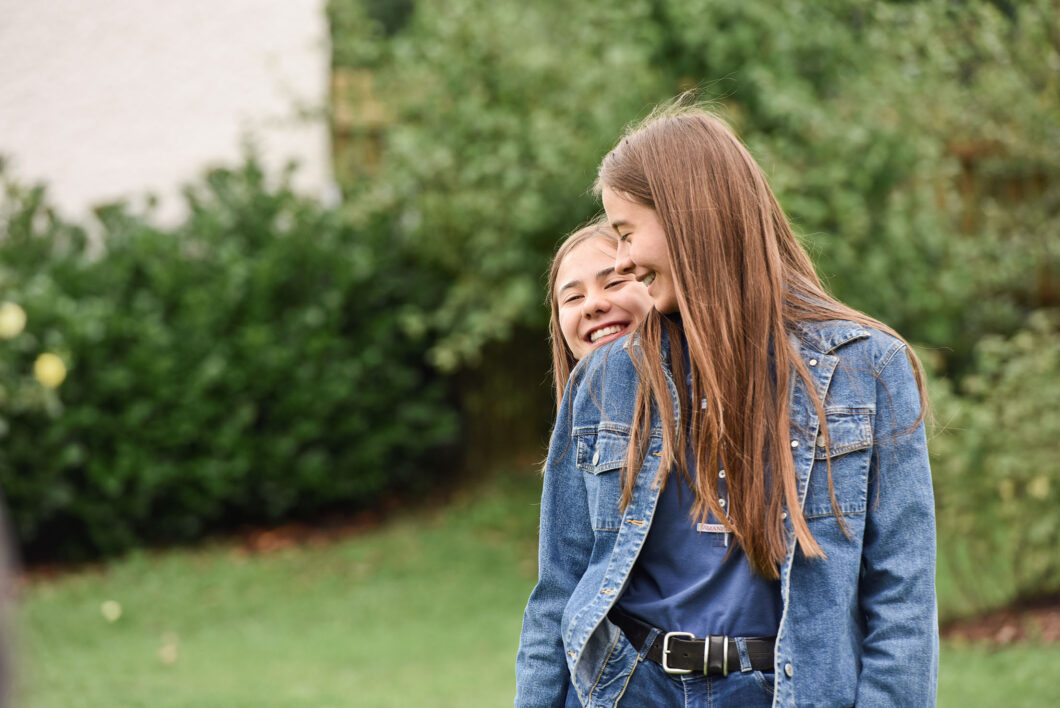
Medical research and new technologies are paving the way to a healthier future for us as a society. What could this look like if we boldly seize the opportunities that present themselves now? What motivates people who are working in research and science, in treatment rooms, meeting rooms and behind their desks at home to ensure that seriously ill children can hope for the “medicine of tomorrow”? And what motivates those who count on this commitment?
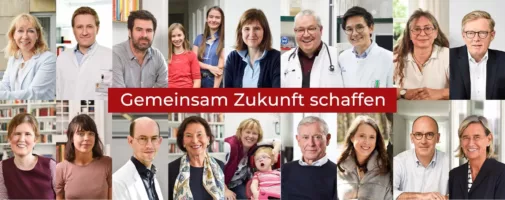
In recent years, Eva Luise and Horst Köhler have been able to gain the support of numerous supporters, from various fields for their cause. We’d like to introduce you to some of them here – as part of a film series that Grimme award-winner Britta Wauer made for the Eva Luise and Horst Köhler Foundation in the midst of the coronavirus pandemic.
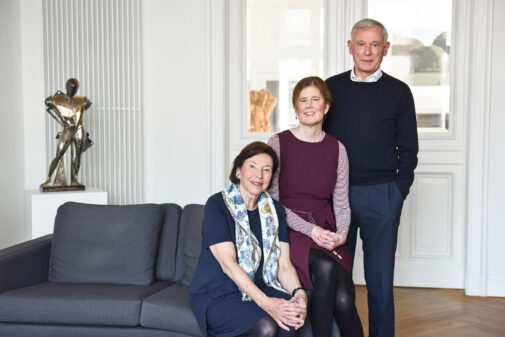
Film portrait: The Köhler family
Living in solidarity with the “orphans of medicine”
Right at the beginning of her husband’s first term of office, Eva Luise Köhler decided to lend her voice to people with rare diseases. This made her a “beacon of hope” for many. Her goal: more research to ensure that everyone has access to a healthy future. The family was aware that a mission like this would require many fellow campaigners and perseverance, but, “That’s what my wife set out to do and I admire her for it,” admits the former Federal President in an interview with Britta Wauer.
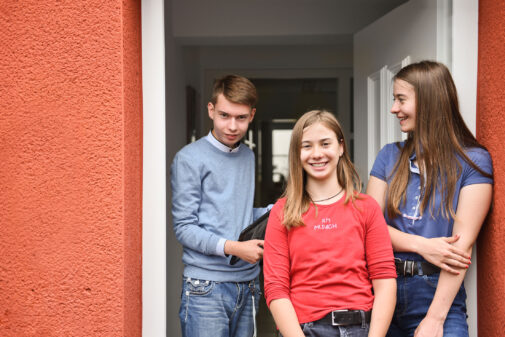
Film portrait: The Bopp family
Like winning the lottery
Within a few months, the previously lively three-year-old had become an apathetic, convulsing bundle. Shortly afterwards, when the parents also recognized the first symptoms of the mysterious condition in their younger daughter, a race against time began. The fact that a highly effective therapy was finally found appeared to be a stroke of luck beyond all probability, but it is also a testament to the fact that the disease was recognized in time, and an appropriate treatment was found.
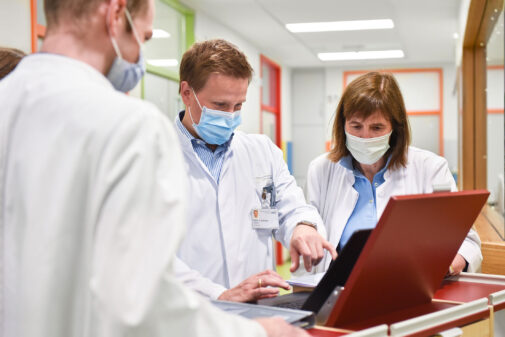
Film portrait: Jutta Gärtner & Hendrik Rosewich
We’re not waiting until Monday morning
How do you manage to work knowing that you are often the only hope for families with a seriously ill child? Jutta Gärtner and Hendrik Rosewich are one of the few contact points for pediatric neurological diseases such as childhood dementia or unclear movement disorders. The diagnosis marks the start of an exhausting race against time. In the search for therapies, patient care and research must go hand in hand – often at weekends. The neuropaediatricians at Göttingen University Hospital experience their work as “deeply meaningful”.
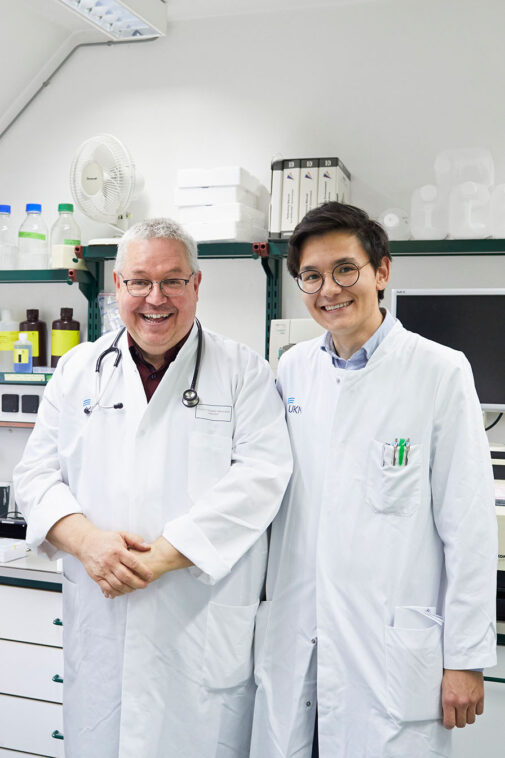
Film portrait: Thorsten Marquardt
There is still a great deal of potential
Often children come to him without a diagnosis, with a long odyssey behind them. Thorsten Marquardt doesn’t always manage to find out how to help them in time. Nevertheless, we owe it to the families to keep searching: “When a child dies, something is always left behind, as a legacy for the next child, so to speak.” Prof. Marquardt, who has already discovered more than 20 diseases with his team and made many of them treatable, is convinced that there is “still a lot of potential” in research into rare diseases.
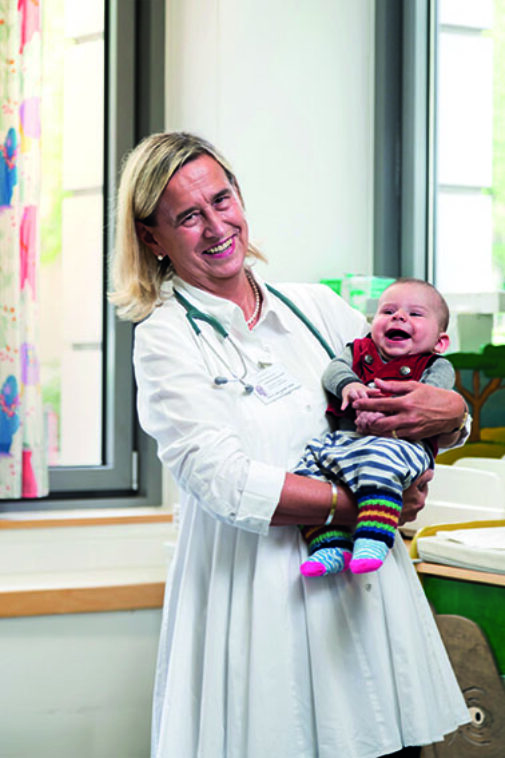
Film portrait: Prof. Dr. Annette Grüters-Kieslich
What are we waiting for?
Prof. Dr. Annette Grüters-Kieslich looks back on 40 years of commitment to children with rare diseases. Some cases have been with her for decades… which may explain her impatience. A pediatrician who has held many high-ranking positions in the course of her career, Dr. Grüters-Kieslich finds it “unbearable” that there is still no concerted national research strategy, even though there are more promising new treatment options than ever before. And so she started forging an “alliance of the willing”. Because: “What are we waiting for?”
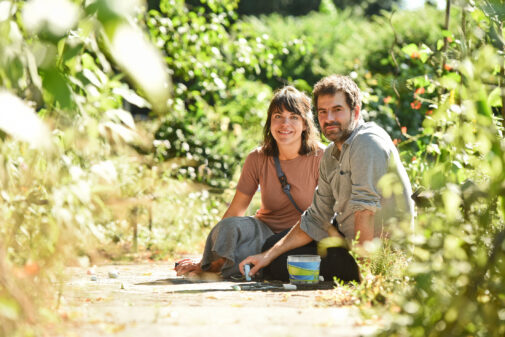
Film portrait: Lina Paulsen & Jens Kiefer
There are moments when knowing is hard to bear
IRF2BPL – when Johnny’s developmental delay was given a name, the cheerful boy had just turned one year old. At the time, there were 21 affected children worldwide. Without treatment options, the extremely rare form of childhood dementia will eventually take everything that he has learned so far. His parents embarked on an emotional rollercoaster ride that veered between “head in the sand” and “now more than ever”. After the initial shock wore off, they began to obsessively make contact with other affected families and the few researchers working in the field.
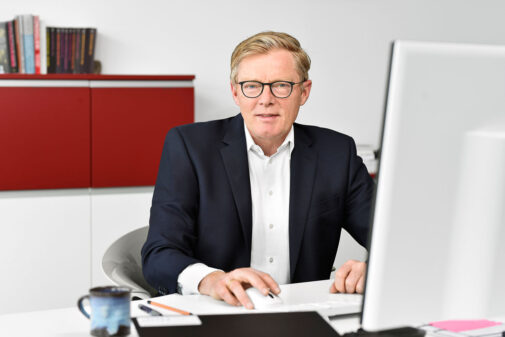
Film portrait: Christopher Baum
How does knowledge translate into action?
“We concern ourselves with the process of turning knowledge into action,” says Christopher Baum, summarizing the mission of the Berlin Institute of Health (BIH). In order to bring new findings into application quickly, it is essential to “go beyond the boundaries of your own laboratory”: Well-coordinated collaboration makes it possible to work through necessary steps in parallel. Baum is convinced that this can shorten the development of new therapies by years. For this reason, it is essential to have broad alliances that also get industry on board at an early stage.
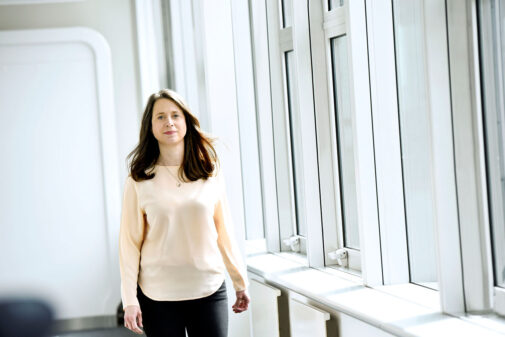
Film portrait: Nicole Schlautmann
How innovative drugs for rare diseases are developed
“Thank you for saving my life!” Statistically speaking, the man who said this to Nicole Schlautmann should already be dead. The fact that he can still report on his health progress is largely due to an innovative drug that was developed shortly beforehand. It is moments like this that drive the biology graduate. Today, she holds a management position at the international pharmaceutical company Pfizer, where she brings her passion for rare diseases to the table as Managing Director in Austria.
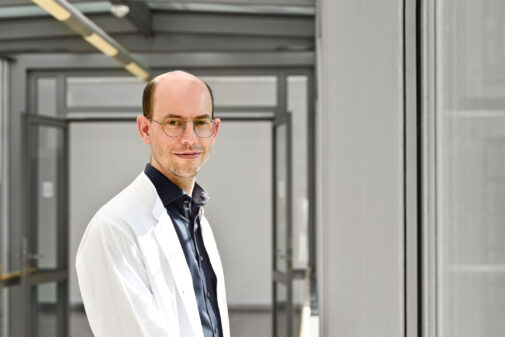
Film portrait: Wolfgang Merkt
Digitalization could revolutionize research
“You need a lot for research – but first and foremost time and money,” says Wolfgang Merkt. In university medicine, resources are scarce. In the case of diseases that often only affect a few thousand people, it is also difficult to collect enough patient data for reliable clinical studies. Researchers therefore rely on good networking – but this also takes time. Merkt hopes that the increasing digitization of medical data could therefore “bring about a small revolution in research”.
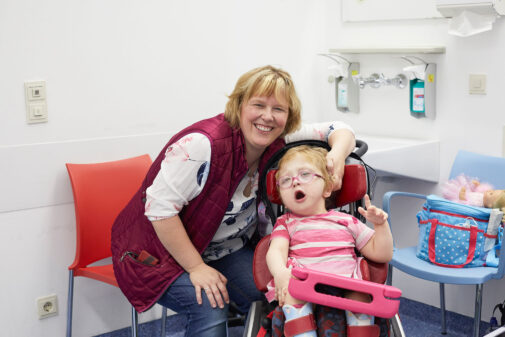
Film portrait: Ivonne Möller
The lucky break of a lifetime
Much in life is chance. The fact that Ann-Christin is alive is thanks to a series of lucky coincidences, the attentiveness of a laboratory employee, and the perseverance of two researchers who would not rest until they found a treatment for the terminally ill infant. Today – seven years later – Ann-Christin is not a healthy child, but a happy one: she responds to her mother’s affectionate jokes with a cheerful chuckle and with her talker she increasingly shows how mischievous her mind is.
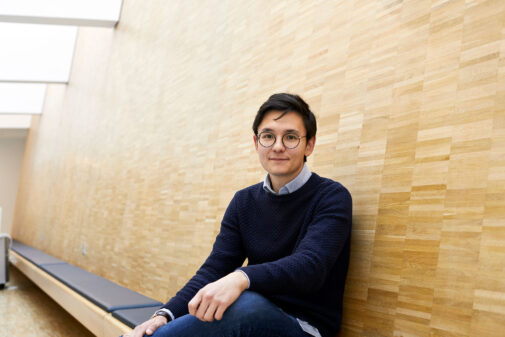
Film portrait: Julien Park
It would be short-sighted not to continue researching further
Julien Park is a pediatrician and clinical scientist at Münster University Hospital. As a clinical scientist, he is released from clinical duties for a certain proportion of his work. He dedicates this protected research time to rare diseases. He is motivated not only by the desire to help affected families in their helplessness, but also by the fact that there is an incredible amount to learn from rare diseases: “Because there are no established treatment options here, medicine is forced to be very innovative.”
As different and unique as the people and the stories portrayed are, they all share the same conviction: We can and must do more to ensure that all people can benefit from the advances of modern medicine. The enormous progress in knowledge that we are currently experiencing and the opportunity to network knowledge worldwide opens up new, hopeful prospects for the “orphans of medicine”. With “Alliance4Rare”, the foundation and its partners are launching a research offensive to ensure that children and young people with rare diseases can benefit from the medicine of tomorrow. We also need your support! Become part of this alliance and help establish the Alliance4Rare research network for rare diseases in children nationwide with your donation!
We would like to thank the Pfizer and Takeda corporations, who each supported the production of the film series with 75,000 euros, enabling the foundation to realize this project on a cost-neutral basis. In order to guarantee journalistic independence, the selection of the interview content and the editing were solely in the hands of director Britta Wauer at all times. We would like to thank her for the great dedication and perseverance with which she has accompanied our work for many years. We would also like to sincerely thank all those portrayed for their time, patience and the trust they have placed in us!
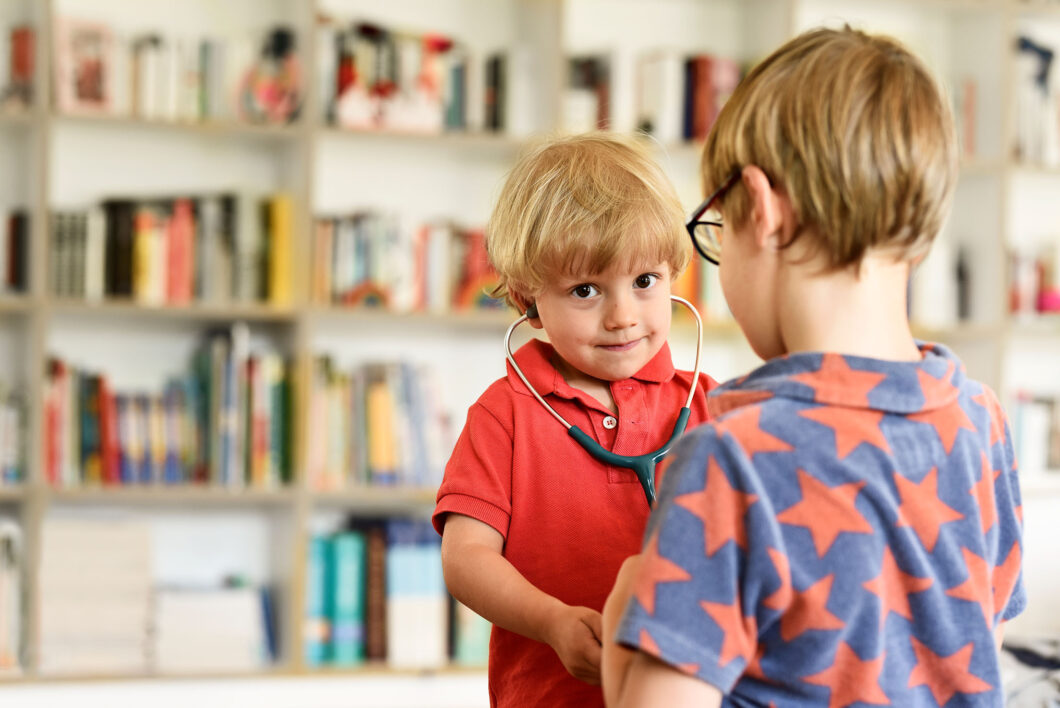
Help the orphans of medicine!
ELHKS uses your donations in a targeted manner – so that medical progress reaches everyone.
Newsletter Subscription
Our free newsletter informs you about current calls for proposals, events and projects concerning rare diseases.